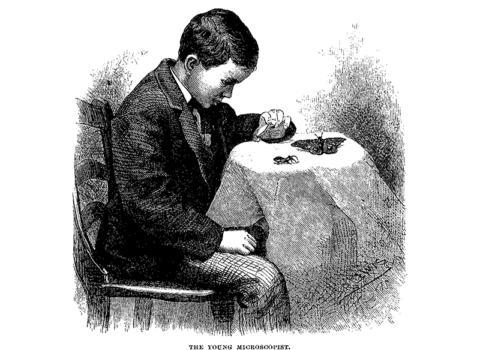The New McCarthyism
The escalating lunacy of what is considered the politically correct code of conduct, temporarily suspended during the American presidential campaign, firmly reinstated itself last month in the messy “McNeil–New York Times affair,” and everyone who’s concerned for the future of free speech in the United States should take note of this.
Regrettably, the Times’s dismissal of the journalist Donald McNeil Jr.—for the crime of having uttered the word “nigger” in front of some high school students more than a year ago, during a trip to Peru organized by the newspaper—isn’t a scandal glamorous enough to arouse a level of interest equivalent to the persecution of Émile Zola in the late nineteenth-century for defending Captain Alfred Dreyfus. According to my sources, McNeil is simply a good journalist with a difficult personality (one of his former colleagues described him to me as “a porcupine”). Despite his alleged antisocial behavior, McNeil has won numerous prizes over the course of his long career; more recently he has specialized in subjects related to health and science, including the AIDS virus, Zika, and COVID-19. In the summer of 2019, invited to serve as a guide for the students on their Peruvian journey, he became involved in a discussion about presumed racism in a student video. McNeil insists on the fact that he used “the N-word” in the discussion as information and not as a slur. The students, all of them white, apparently failed to appreciate McNeil’s incorrect choice of words. In late January 2021, the Daily Beast published an article that revealed how angry some of the students were at McNeil for his use of the word as well as for other remarks of his that they considered insensitive. The revelations caused outrage among many Times staffers, and pressure mounted until McNeil “resigned.” (For a fuller account of the dispute between McNeil and the Times, see McNeil’s Medium posts.)
And there we have it, McCarthyism and mob rule firmly in place at the newspaper of record. McNeil has now been branded a “racist,” in much the same way as in the 1950s Joseph McCarthy and his allies branded people “reds,” even though a great number of them had renounced Marxist ideology and had quit the Communist Party. It mattered little that the Times’s editor-in-chief, Dean Baquet, was obliged to take back an earlier public statement in which he foolishly declared, “We do not tolerate racist language regardless of intent.” After having thought about this statement for a few days, Baquet admitted his error and noted that “Of course intent matters when we are talking about language in journalism.” During Baquet’s period of reflection, though, Times columnist Bret Stephens had written a piece critical of Baquet that included this assertion: “Every serious moral philosophy, every decent legal system and every ethical organization cares deeply about intention.” It was out of the question that such a heretical idea would be published in the Times. But you can read Stephens’s article in Rupert Murdoch’s New York Post, to which the piece was leaked. We have reached the height of irony when the plutocratic ogre Murdoch and his tabloid newspaper have become the keepers of the liberal flame.
The McNeil affair serves to underline an accelerating tendency in the media, as in the society at large, to conduct moral witch hunts based on identity politics. Instead of communists, the hunters pursue racists and sexual predators. There’s no proof that McNeil is in fact a racist, but the accusation will stick to him for a long time, and like the leftist Hollywood screenwriters of the 1950s who were blacklisted for their support of communism, he’ll have trouble finding new employment. His denunciation by young students also recalls the China of Mao Zedong and his fanatical Red Guards, who tormented their insufficiently revolutionary elders. What’s even worse is McNeil’s pathetic “confession,” which is very 1930s Moscow. I’ll quote part of it: “To understand what was in the video, I . . . used the slur itself. I should not have done that. Originally, I thought the context in which I used this ugly word could be defended . . . The fact that I even thought I could defend it itself showed extraordinarily bad judgment.” Really? Since the year 2000, the Times has published “the N-word” 247 times.
Obviously, this is not to say that a New Stalinism is on the rise. Nevertheless, the normally healthy call for racial justice and equality has been contorted by incessant appeals to “diversity,” a word that has been drained of any meaning these days. Will establishing quotas for such and such a number of Blacks, Latinos, Asians, and women improve the sorry state of American journalism? Does an excellent journalist who happens to be white and male deserve to be sacrificed for the advancement of minorities? While the mainstream media scramble to augment their “diversity,” our industry is sinking dramatically in the face of the real danger: GAFAM’s massive theft of our content and our advertising revenue.
The underlying context of this crisis is the timidity and conformism of our intellectual culture. At the present moment, what’s missing from our media is a diversity of viewpoints. Tocqueville noticed this tendency to uniformity at the time of his tour of the United States in 1831–1832: “In America, the majority draws an intimidating circle around thought. Within those limits, a writer is free; but woe to him if he dares to step over the line. It’s not that he must live in terror of an auto-da-fé, but he is subjected to every sort of vileness and to daily persecutions . . . At length he yields, bent under the effort each day requires, and subsides into silence, as if feeling remorse for having spoken the truth.”



